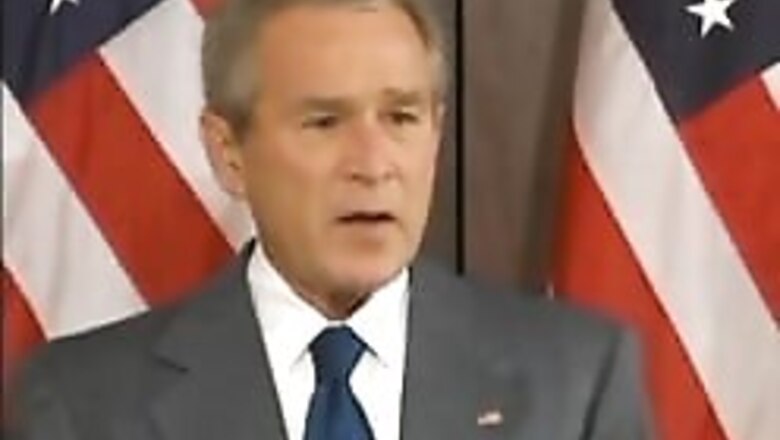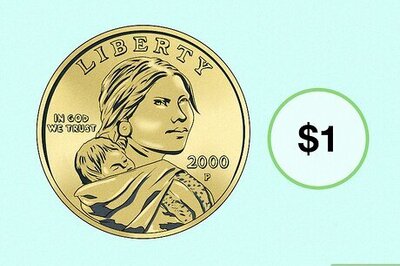
views
Washington: President George W Bush rushed the Indo-US nuclear deal to Congress late on Wednesday with hopes that lawmakers will expedite passage of one of his top foreign policy initiatives.
There is little time left on the congressional calendar to pass the accord, which would reverse three decades of US policy by shipping atomic fuel to India in return for international inspections of India's civilian reactors.
With only about three weeks remaining before Congress recesses for the year, the Bush administration needs lawmakers' help to overcome a law that says Congress may not ratify the accord for 30 working days after receiving it. Secretary of State Condoleezza Rice met Wednesday with India's defense minister and continued a push to persuade senior Democratic lawmakers to allow quick passage of the deal.
Democrats control the House and the Senate, and Rice has been appealing to crucial lawmakers to discuss the accord, including Senate Majority Leader Harry Reid, House Foreign Affairs Committee Chairman Howard Berman and House Speaker Nancy Pelosi.
Lawmakers are scheduled to leave Washington at the end of the month to campaign for the Nov. 4 elections. Barring passage of legislation to scrap the 30-day waiting period, Congress does not appear to have enough days left to ratify the deal.
Defence Minister A K Antony and Rice met privately to discuss the nuclear deal and India-US military cooperation. Antony did not respond to reporters' questions before or after his meeting with Rice.
Some in Congress are vowing a careful and possibly time-consuming review of US-Indian nuclear negotiations, which could doom the plan's passage this year.
That would leave it in the hands of a new Congress and president coming into office in January, and it is unclear whether it would remain a priority. However, both presidential contenders, Democrat Barack Obama and Republican John McCain, have expressed support for the accord, and it has enjoyed backing among senior lawmakers from both parties.
Berman, who supports nuclear cooperation, has said that if the administration wants to speed congressional consideration, it must first deal with qualms some lawmakers have, such as what impact another Indian nuclear test might have on the agreement.
India has refused to sign nonproliferation agreements and has faced a nuclear trade ban since its first atomic test in 1974. But on Saturday, the 45-nation Nuclear Suppliers Group of countries that supply nuclear material and technology agreed to lift the ban on civilian nuclear trade with India after contentious talks and some concessions to countries fearful it could set a dangerous precedent.
US officials have said that selling peaceful nuclear technology to India would bring the country's atomic program under closer scrutiny. Critics say it would ruin global efforts to stop the spread of atomic weapons and boost India's nuclear arsenal.



















Comments
0 comment